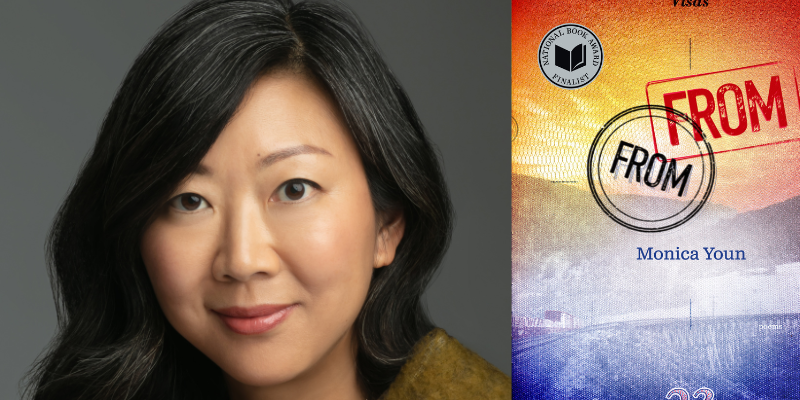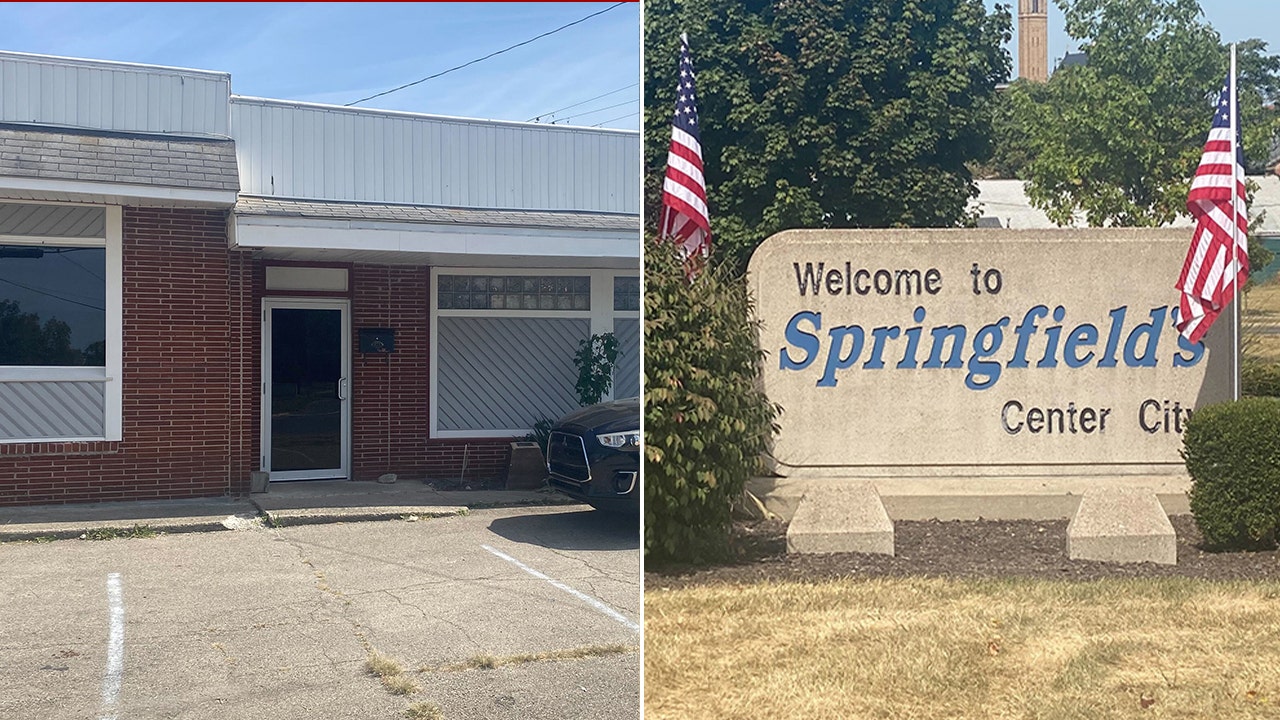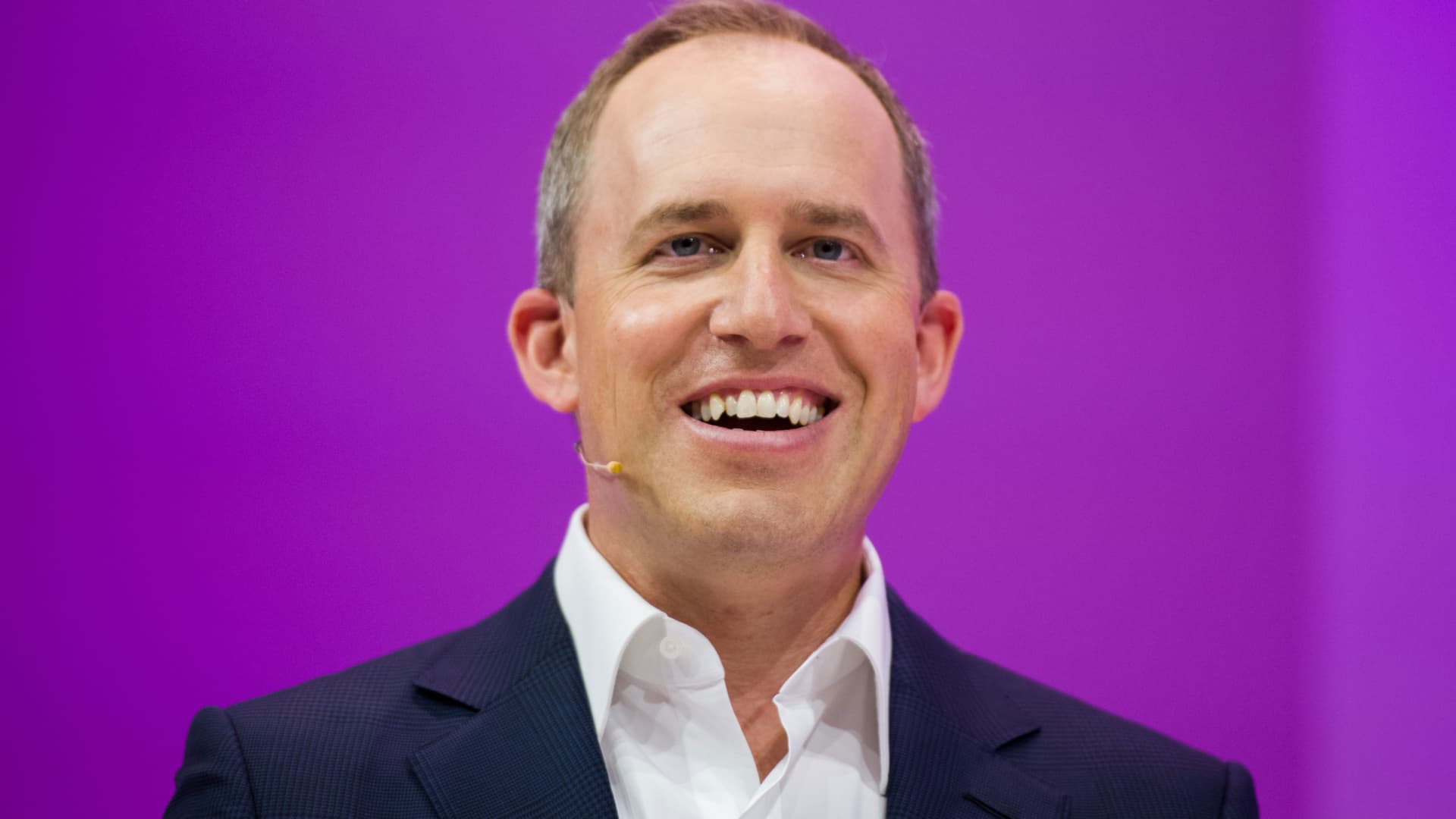Following the cancellation of PEN America’s annual literary awards ceremony as well as its World Voices Festival, acclaimed poet Monica Youn joins co-hosts Whitney Terrell and V.V. Ganeshananthan to talk about political protests and literary prizes. Youn recounts the sequence of events that led her and eight other finalists for PEN’s $75,000 Jean Stein Book Award—as well as a number of nominees in other categories—to withdraw their work from consideration in protest of PEN’s position on Gaza. She explains how PEN’s efforts regarding Gaza and Palestine have failed to match its advocacy for writers in danger in other places, like Ukraine, and discusses whether the organization is living up to its mission to protect free expression. She also describes the situation for student protesters on her own campus, the University of California, Irvine. Youn reads from her most recent collection, From From.
Check out video excerpts from our interviews at Lit Hub’s Virtual Book Channel, Fiction/Non/Fiction’s YouTube Channel, and our website. This episode of the podcast was produced by Anne Kniggendorf.
MEGAPHONE EMBED
*
From the episode:
V.V. Ganeshananthan: We have you here to talk about prizes and protest. And your most recent collection of poetry, From From, as Whitney mentioned, came out last year, and it was on the long list for the PEN/Jean Stein Award and the PEN/Voelcker Award. Both of those prizes are given by PEN America which, as many of our listeners probably already know, is a writers’ organization. On its website, they describe themselves as, “Standing at the intersection of literature and human rights to protect free expression in the United States and worldwide.”
PEN America, in particular, is one of the largest and most influential of 100 or so PEN-affiliated centers worldwide. It was founded in the U.S. in 1922, so it has a long and storied history. On this show, we’ve done episodes on book bans, where we have turned to their data, because that’s the kind of thing they collect and track. They host the PEN World Voices Festival in addition to their literary awards, but this year, after criticism from many writers, they canceled both of those events.
We’re going to get to that in a moment, but for listeners who might not know, can you talk a little bit about the significance of PEN for our community? What do those awards that you were longlisted for recognize? What is their meaning to all of us?
Monica Youn: I want to make it very clear that I’m speaking just for myself. I’m not speaking for the organizers of the protests. I’m not speaking for anyone who was involved in the protests, and I’m not speaking for the writers who withdrew from World Voices. I’m just speaking for myself. I’ve had a long affiliation with PEN. I’ve judged a couple of their prizes. I’ve appeared in their World Voices Festival, and I’ve engaged with them before on issues.
They are an organization that has a very broad reach. They do quite a lot of work—a lot of it being very laudable, urgent, and crucial, especially at this time when it feels like free expression is just under attack everywhere. I’m particularly thinking about the book bans and the lawsuits that they have joined to overturn a number of these book bans. I absolutely support that work. One of the problems I have with PEN America’s current leadership is that they are bringing the organization into such disrepute by their actions, including their actions on Gaza. Also, some of their other actions are preventing this other valuable ongoing work from PEN America from getting the attention and the support that it would otherwise get.
VG: These literary awards are some of the most significant national literary awards. Writers in the U.S. are thrilled to be on these lists. How did you feel when you were longlisted for this award for your beautiful collection?
MY: I never imagined that—I was, of course, deeply honored to be on the list for the Voelcker, which is the poetry award, but the Jean Stein Award is a cross-genre award. I remember the last time I went to the PEN Literary Awards, each of those books was subject to its own slideshow. The idea was that these were the books of the year. I had never imagined that a book of poems, particularly my weird experimental book of poems, would be treated that way.
I was absolutely thrilled with that recognition from the judges. At the same time, I knew people who had withdrawn from the PEN World Voices Festival, and I had been following that controversy. So, we had about a week before the longlists were announced after we were notified that we were on the longlist. Someone called me because they thought I was probably on a longlist, and we had a conversation about what to do. I talked with a friend of mine who had been very involved in the group of writers who withdrew from PEN World Voices about what to do. We sort of talked about various options. Our thought at that time was to stay engaged for the time being. I’m kind of getting ahead of your questions now. Did you want to jump in here?
Whitney Terrell: I would say that’s fine. Let’s tick tock this a little bit—not in the terms of social media, but in terms of timeline. You’re getting calls about what to do about being on this longlist. There’s things that happened before those calls, and probably, some of our listeners don’t know that story. I’m wondering if you could fill us in on the background that led up to those phone calls about, “What are we going to do here?”
MY: Yes, PEN America had been getting criticism for some time around many issues, but in particular, its stance on Palestine. All of it ramped into high gear after the war in Gaza started, after they decried the Hamas attacks and hostage-taking. Then, when Israel retaliated, and began its bombardment of Gaza, PEN International, relatively quickly—still in October 2023, if my recollection is correct—issued a call for an immediate ceasefire and was joined by most of the PEN International chapters. PEN America was one of the few organizations to resist that call and refused to join. There were quite a few raised eyebrows about that. As their work on Gaza continued, they put out the occasional statement about what was happening in Gaza, but at all times, it seemed like they were trying to resist criticizing Israel—to resist criticizing the Israeli government.
I believe that a lot of the initial pressure on PEN was about their refusal to join demands for a ceasefire. They equivocate, but didn’t really give much of an answer, other than saying they didn’t really take sides on such issues. People called them out pretty quickly on that. For example, if you look at their work on Ukraine, they put out a letter in solidarity with Ukrainian writers. They put in a report to the U.N. Human Rights Commission regarding the suppression of Ukrainian journalists and academics. They launched an extensive report regarding the suppression of Ukrainian writers.
The suppression of Palestinian writers had been an ongoing issue, even prior to October 7. Again, it ratcheted up substantially in the wake of the coverage that the war on Gaza brought, and PEN would put out isolated reports about an individual journalist, or an individual academic being arrested or killed. I think PEN was resisting calling out the war on cultural institutions in Gaza—what people have been referring to as a cultural genocide or a cultural erasure. At the same time, another issue that came up is the Los Angeles chapter inviting a pro-Israeli and anti-ceasefire advocate to speak. A number of protesters showed up, including Palestinian American writer, Randa Jarrar. My understanding was that the protesters were reading the names of Palestinian writers who had been killed by Israel over the course of the war in Gaza. Randa Jarrar was physically removed from the venue, and this caused a lot of trauma to both Jarrar herself, and to members of the community.
At the same time, Suzanne Nossel, the executive director of PEN America, had been under scrutiny for her significant ties to Israel. I think she had accepted donations for the founding of PEN Israel and had gone over to Israel in December 2023 in support of that mission. She also met with Palestinian writers while she was there. From what I’ve been told, she hired a number of senior staffers from the Anti-Defamation League, which I think, as a lot of people know, has been increasingly equating anti-semitism with the criticism of Israel, and has worked in that way to suppress free speech in many instances. I think the conjunction of all of these circumstances led to the appearance that PEN was, in fact, taking sides in the Gaza conflict—that it was adopting a relatively pro-Israel position. At the least, it was refraining from the sort of criticism of Israel that has often been levied against other governments and institutions suppressing free expression, and doing so in contradiction to its mandate.
At the same time, PEN, as an employer, has been involved in ongoing labor disputes. They have been in contractual negotiations with their union for 18 months. I think the heart of the issue is that they are failing to pay their employees a living wage in the multiple cities in which they operate. Also, in March of this year, they suddenly put forward contractual language that said that employees could be disciplined even for outside speech that in some way interfered with PEN’s mission.
As you mentioned, I am a former First Amendment lawyer. I have written articles on the First Amendment “chilling effect,” and that language seems to be designed to chill the legitimate free expression of PEN’s own employees outside the workplace. For an organization that claims to mandate the protection of free expression, that just seemed unconscionable to me. So, all of these issues were up in the air and continue to be up in the air.
Now, after a number of well-known writers withdrew from the PEN World Voices Festival and put out an open letter explaining their reasons and their disagreement with PEN’s position on Gaza and many other issues, PEN finally did call for a ceasefire at the end of March. But they only called for an immediate ceasefire, there was no mention of a permanent ceasefire. And they have agreed to engage in some sort of self-reflection exercise. But they haven’t really met any of the concrete demands that people have been asking for, either with regard to Palestine, or with regard to the ongoing labor disputes.
At this point, I think pretty much all of the writers I have talked to are in agreement that PEN has really lost the trust of the literary community, and it can’t function effectively until there is a change of leadership. I’m really hoping that that change of leadership happens soon so that PEN can get on with doing the work that it does, which is important work. But I do think that that change in leadership is going to require the resignation of Suzanne Nossel and a real good faith signaling of a change in direction from the organization before it can function effectively again.
Transcribed by Otter.ai. Condensed and edited by Mikayla Vo. Photo of Monica Youn by Beowulf Sheehan.
*
From From • Blackacre • Ignatz • Barter
Others:
“PEN America calls off awards ceremony amid criticism over its response to Israel-Hamas war,” by Hillel Italie |AP News • “The PEN Awards and World Voices Festival Are on the Brink of Collapse,” by Dan Sheehan | Literary Hub • “A Leading Free Expression Group Is Roiled by Dissent Over Gaza,” by Jennifer Schuessler | The New York Times • American Writers Against the Vietnam War | Wikipedia • Fiction/Non/Fiction: Season 5, Episode 10: “‘How on Earth Do You Judge Books?’ Susan Choi and Oscar Villalon on the Story Behind Literary Awards” • Anthony Cody • Mai Der Vang • Suzanne Nossel • Natalie Diaz • “PEN Union Cries Foul in Contract Talks as Criticism of PEN America Intensifies,” by Jill Milliot and Sophia Stewart | Publishers Weekly















































![‘Chicago P.D.’ Boss Talks Upton’s Exit, Bringing Back [Spoiler] & Season 12 Teases ‘Chicago P.D.’ Boss Talks Upton’s Exit, Bringing Back [Spoiler] & Season 12 Teases](https://www.tvinsider.com/wp-content/uploads/2024/05/chicago-pd-season-11-finale-olinsky-857x570.jpg)








